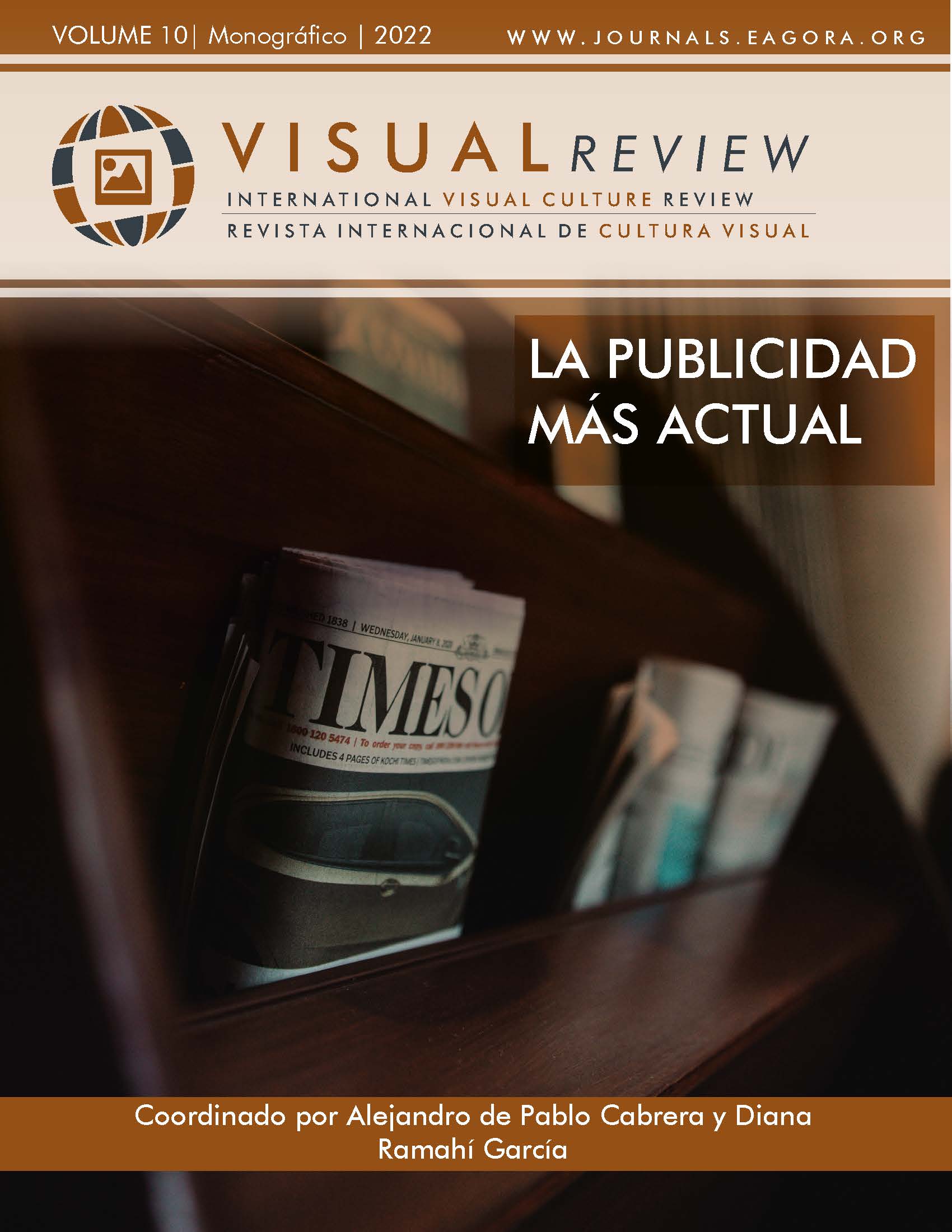The evolution of visual language in wine packaging
DOI:
https://doi.org/10.37467/revvisual.v9.3594Keywords:
Packaging, Wine communication, Art, Icons, Marketing, Label, ChangeAbstract
Packaging plays a leading role in wine marketing: sight is the main sense that the buyer will use, so the relevance of visual language is almost as important as that of words in wine communication. This paper looks at the evolution of visual language in packaging through a literature review and the analysis of more than 500 samples. The results show a clear evolution in design towards originality, but also a shift from playing a basically persuasive role to being key in the identifying function and contributing to the informative function.
Downloads
Global Statistics ℹ️
|
746
Views
|
355
Downloads
|
|
1101
Total
|
|
References
Barba, L. M. (2021). La cata de vinos. Grijalbo.
Blethen, C. (2007). The Wine Etiquette Guide. Trafford Publishing.
Bujanda, L. (2008). El vino a través de la historia. Bodegas Fernández de Piérola, S. L.
Casamayor, P. (2022). Le vin en 50 questions. Hachette.
Cobbold, D., & Durand-Viel, S. (2013). Le vin par l’étiquette. Hachette.
Hekkert, P. (2006). Design Aesthetics. Principles of pleasure in design. Psychology Science, 48(2), 157-172.
Hidalgo, L. (2002). Tratado de viticultura general. (3ª ed.). Mundi-Prensa.
Lunardo, R., & Guerinet, R. (2009). The influence of label on wine consumption: its effects on young consumers’ perception of authenticity and purchasing behavior. En M. Canavari, N. Cantore, A. Castellini, E. Pignatti & R. Spadoni (Eds.). International Marketing and Quality Food Products (pp. 279-295). Wagenigen Academic Publishers.
Marcial, M. V. (2005). Epigramas. Vol. II. Libros 8-14. Consejo superior de Investigaciones Científicas.
Neiman, O. (2021). Le vin c’est pas sorcier. Hachette.
Pascual, M., & Martínez, G. (2022a). La etiqueta de vino: la evolución de un género. En M. Ibáñez (Ed.). Enotradulengua. Géneros y tipos textuales en el sector del vino (pp. 35-53). Peter Lang.
Pascual, M., & Martínez, G. (2022b). ¿Qué nos dice el etiquetado del vino? En A. M. Martínez, C. Paradinas y D. Muñoz (Eds.). Comunicación y soluciones digitales para nuevos contenidos (pp. 365-378). Gedisa.
Peñín, J. (2008). Historia del vino. Espasa.
Phillips, R. (2018). Wine. A social and cultural history of the drink that changed our lives. Infinite Ideas.
Pitte, J. R. (2021). La bouteille de vin. Historie d’une révolution. Éditions Tallandier.
Pivot, B. (2006). Dictionnaire amoureux du vin. Plon.
Réglementation des capsules représentatives de droits (2013). Bulletin officiel des douanes, 6987, de 29 de agosto. https://bit.ly/3zBCDoB
Rocchi, B., & Stefani, G. (2016). Consumers’ perception of wine quality: A Case Study. International Journal of Wine Marketing, 18(1), 6-16. https://doi.org/10.1108/09547540610657641
Rouzet, E. y Seguin, G. (2005). El marketing del vino. Mundi-Prensa.
Russo, V., Mauri, M., Chiappa, M., Ciceri, A., & Fici, A. (2020). Neuromarketing e vino : il ruolo delle etichette e la percezione della qualità. En V. Russo & P. Marin (Eds.). Comunicare il vino. Tecniche di neuromarketing applicate (pp. 205-228). Guerini Next.
Serdio, E. (2015). Diccionario profesional del vino. (2.ª ed.). Global Marketing.
Teague, L. (2011). Judge a Wine by What it Wears. The Wall Street Journal. 7 de mayo. https://on.wsj.com/3vfX9s3
Valero, E. (2010). Marketing y distribución. En E. Valero & O. Llamazares (Eds.). Cómo dirigir una bodega (pp. 141-186). Global Marketing.
Vandyke-Price, P. (1985). Wine: Lore, legends and traditions. Hamlyn.
Wagner, P., Olsen, J., & Thach, L. (2010). Wine Marketing and Sales: Success Strategies for a Saturated Market. The Wine Appreciation Guild.
Wiesenthal, M. (2011). Gran Diccionario del vino. Edhasa.
Downloads
Published
How to Cite
Issue
Section
License
Those authors who publish in this journal accept the following terms:
-
Authors retain copyright.
-
Authors transfer to the journal the right of first publication. The journal also owns the publishing rights.
-
All published contents are governed by an Attribution-NoDerivatives 4.0 International License.
Access the informative version and legal text of the license. By virtue of this, third parties are allowed to use what is published as long as they mention the authorship of the work and the first publication in this journal. If you transform the material, you may not distribute the modified work. -
Authors may make other independent and additional contractual arrangements for non-exclusive distribution of the version of the article published in this journal (e.g., inclusion in an institutional repository or publication in a book) as long as they clearly indicate that the work was first published in this journal.
- Authors are allowed and recommended to publish their work on the Internet (for example on institutional and personal websites), following the publication of, and referencing the journal, as this could lead to constructive exchanges and a more extensive and quick circulation of published works (see The Effect of Open Access).














